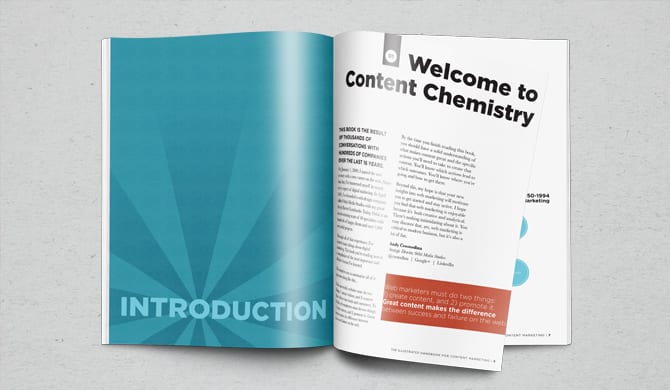Very often when we design a blog for a client at Orbit, we leave tags out of our wireframes, designs, and eventual implementations of WordPress. We don’t use tags on our blog to categorize content either, and we have a few reasons. But first, it is important to understand the roles that categories and tags play on a website or blog.
Categories and tags are taxonomies.
A taxonomy is simply a way to organize content. With categories, you are structuring information into a hierarchy. This means that categories function like a table of contents for your blog. Tags organize posts on a much more specific level and create relationships across categories.
Another metaphor: your blog is a recipe box and your post is a recipe.
- Categories would be how you arrange those recipes in the box – by type of dish. You might have sections like Entree, Salad, and Dessert.
- Tags would be ingredients, tools, and techniques for each of those recipes.
In my recipe box, if you looked for all the recipes that had butter, you would be pulling something from every section.
Do I need both?
No. You absolutely have to have categories. In theory, you could just put every post into the same category, but that wouldn’t be all that useful.
Categories should be large groups of your posts – the subjects that you post about most often. If most of your posts can be in more than one top-level category, your categories are not effectively grouping your content.
Tags, while not necessary, are incredibly helpful, but only if you use them correctly. Abuse them, and you will make them useless to visitors and anger the Google gods at the same time.
If you are only ever going to write about a topic once, then it doesn’t need to be (and shouldn’t be) added to a post as a tag. Creating a tag that connects to just one post will create an archive for that tag that contained just one post. Not helpful to the reader. Plus, you now have two pages with the same content, a practice Google strongly dislikes.
Myth-Busting: Tags are not SEO keywords, unless you have set up a plugin or code to turn them into meta keywords. The role of tags in blogging is different than that of a meta keyword. To learn more about meta keywords, check out this post on SEO best practices.
As a content creator, it is easy to love tags because of how they can help customers explore your blog in a different way. Meaningful tags enhance a reader’s experience. But a blog without them isn’t hindered. Your content will still be categorized and organized. You won’t end up creating duplicate content or useless links. You can still have internal links, and if you want to, you can add a list of posts for further reading to each post.
Tags sound awesome, but they are starting to sound like a lot of work.
They are both of those things. They require diligence on behalf of the blog authors, editors, or admins to make sure that the tags are being implemented consistently across a site and that there are no lone-ranger tags. Different authors will pick different tags for the same post. Do you use singular or plural forms of tags? Are tags a specific type of attribute or are they varied?
This extra work is where I am going to tell you that it is ok to draw the line. It is one more moving part on your site and in your content marketing strategy that isn’t crucial to success. This Orbit blog uses tags only to denote guest posts or posts that we’ve written for another website. That’s it.
Tags require planning and review. Our blog posts gain traction on Google, and we don’t use tags to give our posts any extra juice, create additional indexable pages, or increase internal links. A successful blog is dependent mostly on the content. If that is where you focus your energy, leaving tags off your blog won’t matter.




